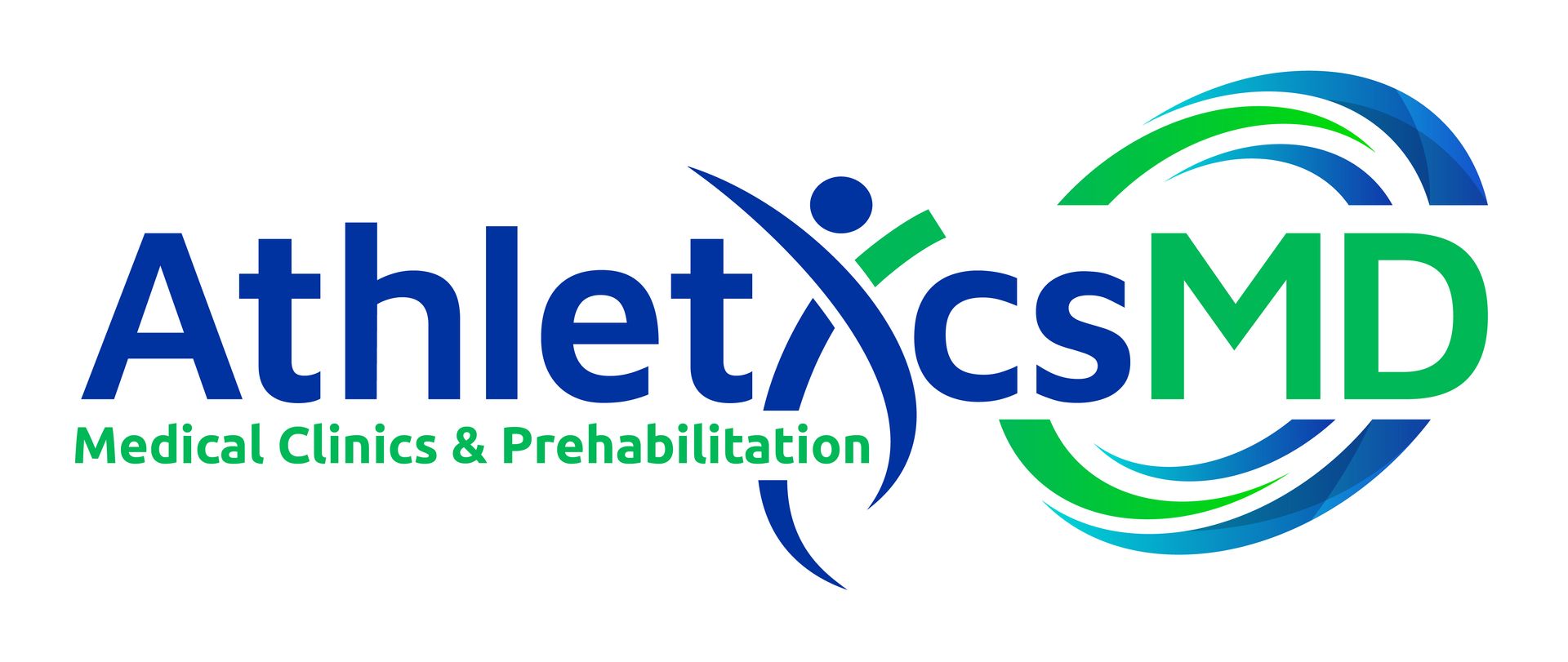MyPrehab™ – Prehabilitation for Stronger, Safer Surgery and Better Health
Your Health. Optimized Before It’s Tested.
What’s MyPrehabTM?
Surgery and critical illness are some of the most physically demanding events your body will ever face. Whether you’re preparing for a planned operation or recovering from a recent procedure, the better your baseline health, the faster and safer your recovery. MyPrehab™ at AthleticsMD® is a comprehensive, all-inclusive prehabilitation program that strengthens you from the inside out before the stress of surgery — or major life events — ever occur.
Our approach addresses every critical factor: hypertension, diabetes, obesity, medication optimization, physical activity, nutrition, and social support. This is not just “pre-op clearance.” This is a structured, physician-led, evidence-based program designed to reduce complications, shorten hospital stays, and improve long-term outcomes.
Evidence-Based Benefits of Prehabilitation
Research consistently shows that prehabilitation works:
- Ljungqvist et al., 2017 (JAMA Surgery) – Multimodal prehabilitation reduced post-op complications and hospital length of stay.
- Topp et al., 2009 (Physical Therapy) – Strength training before surgery improved mobility and function post-op.
- Carli et al., 2020 (Anesthesiology Clinics) – Comprehensive prehabilitation programs improved cardiorespiratory fitness, reduced infection risk, and enhanced recovery after major abdominal surgery.
- Minnella et al., 2018 (British Journal of Surgery) – Nutrition and exercise-focused prehabilitation improved functional recovery and quality of life after colorectal surgery.
These findings match what we see daily: patients who prepare recover faster, feel better, and avoid preventable complications.
What’s Included in MyPrehab™
- Medical Optimization – Blood pressure, blood sugar, cholesterol, and weight management.
- Polypharmacy Management – Medication review to minimize interactions and optimize dosing.
- Personalized Nutrition Plan – Designed to boost immune function, muscle mass, and healing capacity.
- Strength & Cardio Training – Customized physical activity plan developed with a certified trainer.
- Cardiac & Pulmonary Conditioning – Improve oxygen delivery and exercise tolerance for better anesthesia and surgical outcomes.
- Social & Emotional Support – Stress reduction, caregiver planning, and peer support.
- In-House Rapid Labs – Same-day results to track progress and adjust interventions in real time.
- Complimentary Hands-Free Executive Massage – Enhances circulation, promotes relaxation, and supports recovery.
Program Duration & Pricing
- Length: 4–10 weeks prior to your surgery or event, based on individual needs.
- Cost:
- $1,450 for the first 4 weeks (all-inclusive, may be reimbursable by insurance if filed)
- $250/week for each additional week
- Includes: All labs, physician visits, training sessions, nutrition planning, and ongoing support
Why MyPrehab™ Is the Most Affordable Comprehensive Prehab Program in the Nation
Most hospital-based prehabilitation programs— which often provide just basic physical therapy and nutrition — cost $2,000 to $5,000 for 4–6 weeks. Comparable private multidisciplinary programs with physician oversight typically cost $1,200–$2,500 for just 4 weeks and rarely include on-site labs, advanced cardiac/pulmonary training, or medication optimization (MUHC Libraries, 2020, Sportscare Armworks).
By contrast, MyPrehab™ delivers a more advanced, physician-led, all-inclusive program — with ICU-grade rapid labs, comprehensive medical management, personalized exercise and nutrition, and therapeutic recovery treatments — for just $1,450 for the first 4 weeks. That’s hundreds to thousands less than other programs of equal or lesser scope.
A University of Michigan study even found that prehabilitation can reduce total surgical episode costs by an average of $3,200 per patient through fewer complications and shorter recovery times (RehabPub).
FAQ
Do I need surgery to enroll?
No. MyPrehab™ is also ideal for people who want to improve their health proactively before illness strikes.
How soon before surgery should I start?
Ideally 4–8 weeks before surgery, but even 2 weeks can improve outcomes.
Will this replace my surgeon’s clearance?
No. This is above and beyond surgical clearance — it’s about optimizing your entire body system for the best recovery possible.
I have multiple health issues. Can I still join?
Absolutely. In fact, patients with hypertension, diabetes, obesity, or on multiple medications benefit most.
What if I can’t exercise much because of my condition?
We create safe, modified programs that improve strength and endurance without overexertion.
Is the program covered by insurance?
MyPrehab™ may be reimbursable by insurance if filed. We can provide the documentation and CPT coding needed for submission.
Blog Feature

